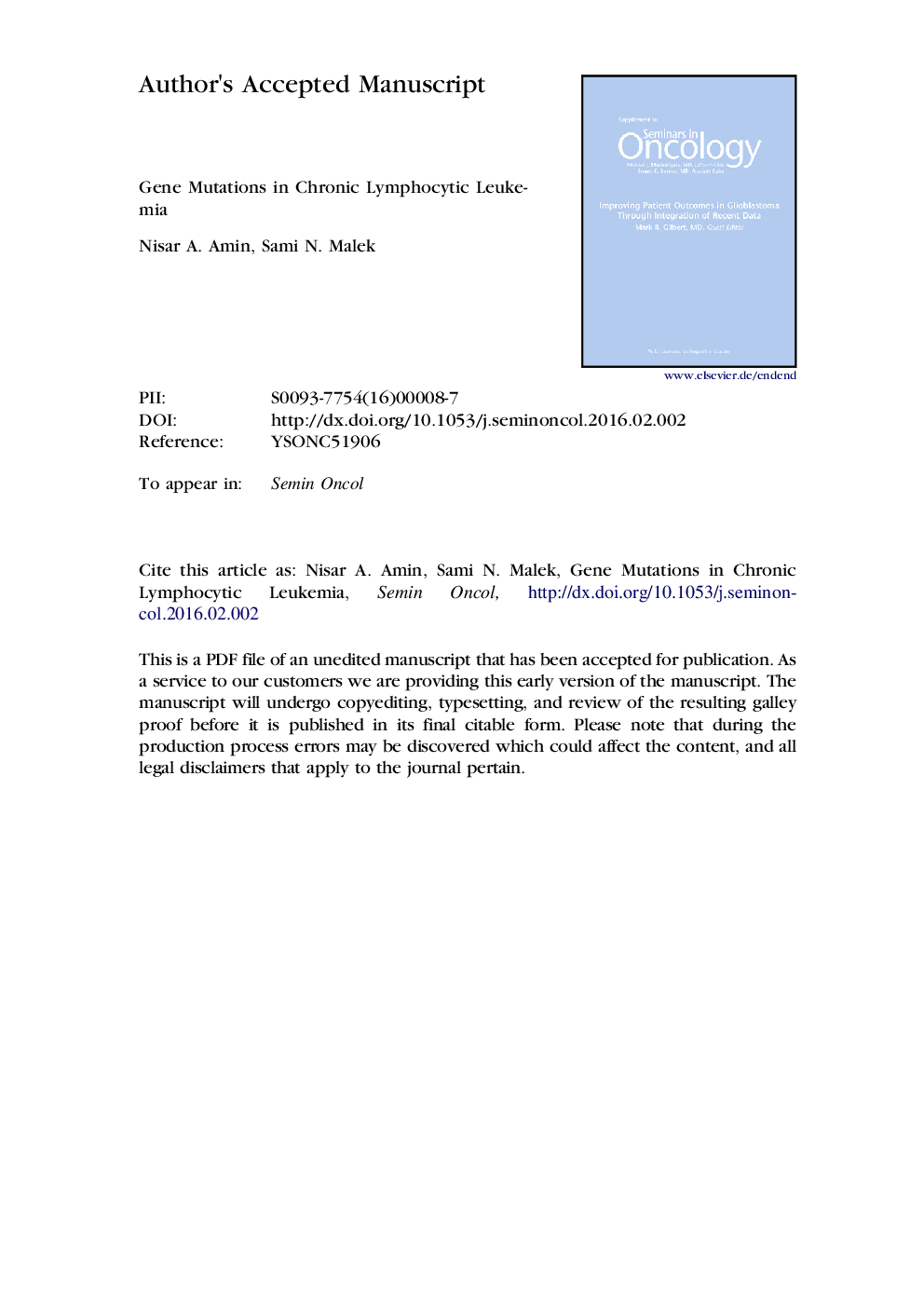| Article ID | Journal | Published Year | Pages | File Type |
|---|---|---|---|---|
| 2161745 | Seminars in Oncology | 2016 | 31 Pages |
Abstract
The recent discovery of genes mutated in chronic lymphocytic leukemia (CLL) has stimulated new research into the role of these genes in CLL pathogenesis. CLL cases carry approximately 5-20 mutated genes per exome, a lower number than detected in many human tumors. Of the recurrently mutated genes in CLL, all are mutated in 10% or less of patients when assayed in unselected CLL cohorts at diagnosis. Mutations in TP53 are of major clinical relevance, are often associated with del17p and gain in frequency over time. TP53 mutated and associated del17p states substantially lower response rates, remission duration, and survival in CLL. Mutations in NOTCH1 and SF3B1 are recurrent, often associated with progressive CLL that is also IgVH unmutated and ZAP70-positive and are under investigation as targets for novel therapies and as factors influencing CLL outcome. There are an estimated 20-50 additional mutated genes with frequencies of 1%-5% in CLL; more work is needed to identify these and to study their significance. Finally, of the major biological aberration categories influencing CLL as a disease, gene mutations will need to be placed into context with regard to their ultimate role and importance. Such calibrated appreciation necessitates studies incorporating multiple CLL driver aberrations into biological and clinical analyses.
Related Topics
Life Sciences
Biochemistry, Genetics and Molecular Biology
Cancer Research
Authors
Nisar A. Amin, Sami N. Malek,
